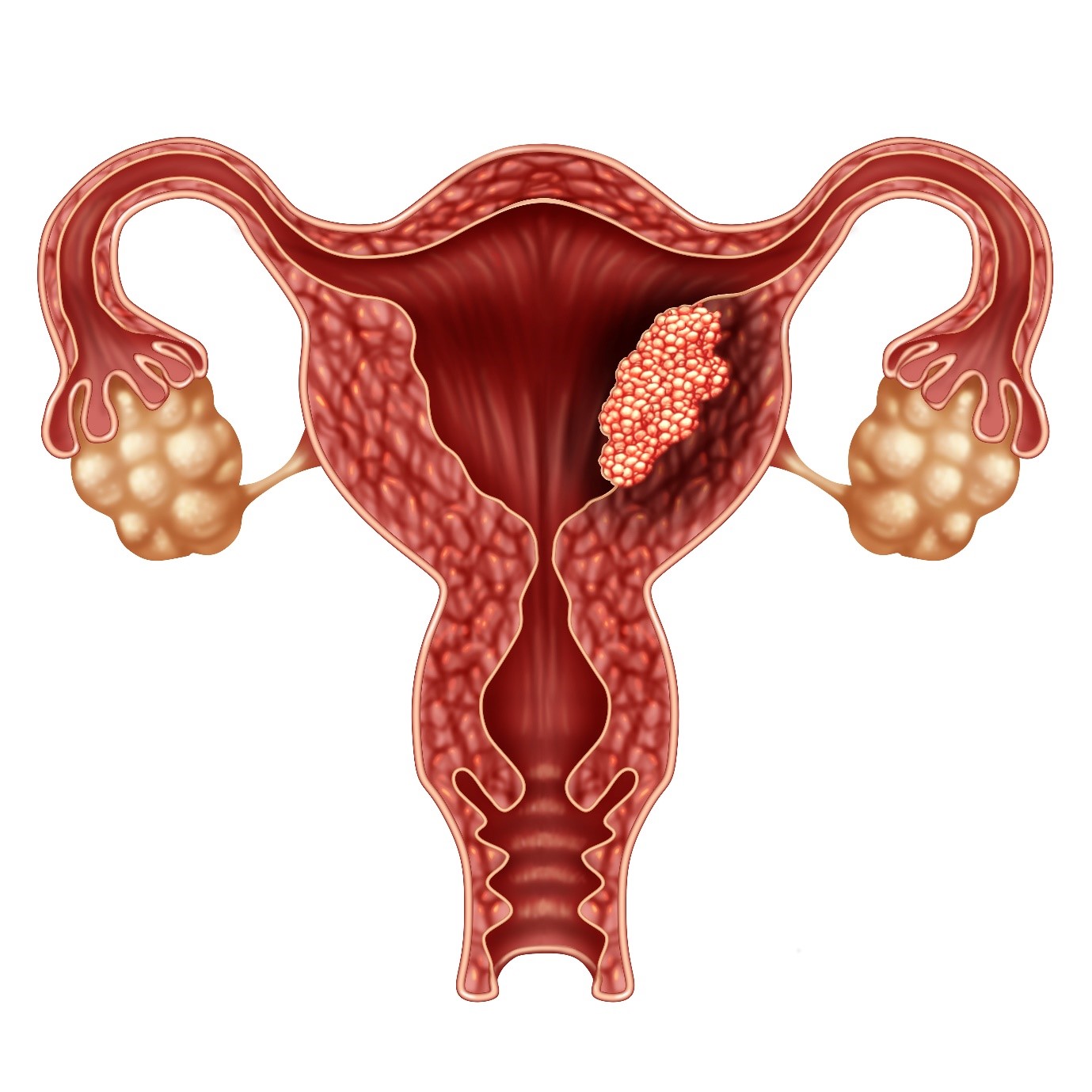What is Endometrial Cancer?
Endometrial cancer primarily refers to cancer that develops in the cells lining the uterine cavity, located in the upper part of the uterus.
Unlike cervical cancer, which arises in the cervix, endometrial cancer is the most prevalent form of uterine cancer.
It occurs when healthy cells in the endometrium mutate, proliferate uncontrollably, and may form Endometrial Cancer.
What Are the Symptoms of Endometrial Cancer?
Early signs of endometrial cancer include:
- Unusual vaginal bleeding, including excessively heavy periods or bleeding between cycles.
- Pelvic pain
- Any vaginal bleeding or spotting post-menopause
These symptoms warrant immediate consultation with a doctor, as they could indicate the presence of cancer.
What Are the Risk Factors?
Various factors can heighten the likelihood of developing endometrial cancer, including:
- Age: Risk increases with age, particularly in post-menopausal women.
- Obesity: Higher body weight leads to elevated estrogen levels, which can stimulate abnormal uterine cell growth.
- Menstrual History: Starting menstruation early (before 12) or experiencing menopause later in life increases estrogen exposure.
- Genetics: A family history of endometrial cancer or conditions like Lynch syndrome raises risk.
- Hormonal Changes: Conditions like PCOS, obesity, and hormone therapies can disrupt hormonal balance, increasing cancer risk.
How is Endometrial Cancer Diagnosed?
Endometrial cancer is often diagnosed at earlier stages due to its symptomatic nature. Diagnosis may involve:
- Pelvic Exam: Physical examination of the vagina, cervix, uterus, and ovaries for abnormalities.
- Transvaginal Ultrasound: Sound waves create images to assess the uterine lining’s thickness and identify potential tumors.
- Endometrial Biopsy: Tissue samples from the uterine lining are examined for cancer cells.
- Pap Smear: While primarily for cervical cancer screening, it may indicate abnormal endometrial cells.
What Are the Treatment Options and Prognosis?
Treatment usually starts with surgery to remove the uterus and any potentially affected lymph nodes. Additional therapies may consist of:
- Radiation Therapy: Employs high-energy rays to eliminate cancer cells.
- Chemotherapy: Utilizes drugs to specifically target and destroy cancerous cells.
- Immunotherapy: Activates the immune system to combat cancer.
- Hormone Therapy: Adjusts hormonal activity to slow cancer growth.
The prognosis for endometrial cancer varies by stage:
- Localized (Stage I): 96% five-year survival rate
- Regional (Stage II): 72% survival rate
- Distant (Stage IV): 20% survival rate
For personalized treatment options and expert guidance, visit OncoHeal Cancer Centre. Our team is here to assist you at every stage of your recovery journey. Don’t hesitate; take control of your health today!


